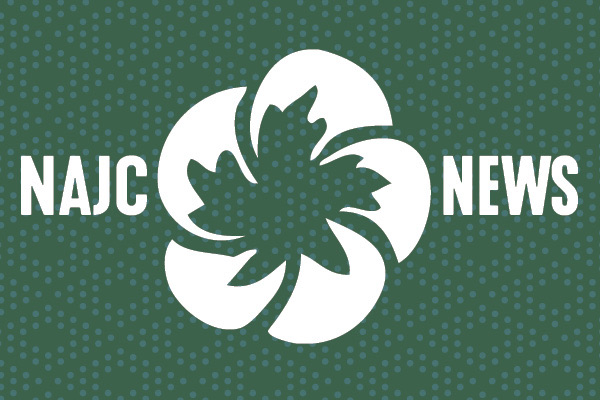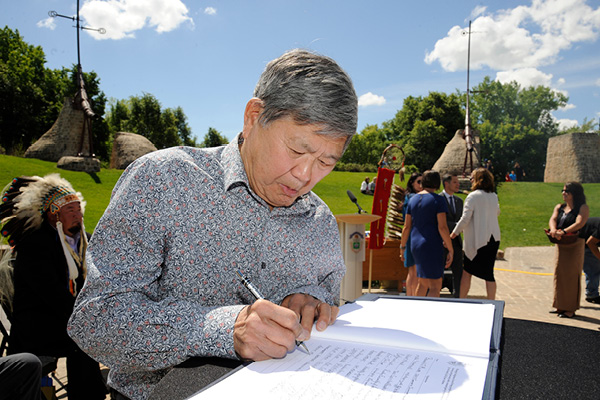January 4, 2013
To: Prime Minister Stephen Harper, Prime Minister’s Office
Re: Idle no more
The National Association of Japanese Canadians is pleased to hear that you will be meeting with Attawapiskat Chief Theresa Spence; National Chief Shawn Atleo and other chiefs on January 11, 2013. At this meeting I urge you to engage in open and meaningful dialogue to discuss concrete commitments and the preservation and fulfillment of Treaty rights. If Canada wishes to remain an international exemplar of human rights justice, we must demonstrate the importance of consultation with and incorporation of the views of Aboriginal leaders and their communities in all matters of national policy.
We oppose Bill C-45 because of the lack of consultation with Aboriginal peoples on the changes to the Indian Act, and other legislation affecting waterways, reserve lands, and education. These legislative changes will have a profoundly negative impact on the rights of Aboriginal peoples, and non-Aboriginal Canadians alike.
The 25th anniversary of Japanese Canadian redress is approaching, and we are reminded of the decades that Japanese Canadians had to fight to obtain justice. We remember the energy, persistence, and resilience it took to obtain the ability to negotiate directly with the Government of Canada over redress for the abrogation of our rights through dispossession, internment, and relocation. We remember that the Assembly of First Nations, under the direction of Chief Georges Erasmus, stood by us in solidarity with our redress efforts. We remember how Canadian legislation, known as the War Measures Act, enabled this country to “legally” abrogate the rights of 22,000 Japanese Canadians – 14,000 of whom were born in Canada. Chief Theresa Spence, the Assembly of First Nations, and all Aboriginal communities gathered in strength to spread awareness of their ongoing struggles and bring forth much needed change – they are not alone. The National Association of Japanese Canadians stands in solidarity with these efforts and will take action accordingly.
As Japanese Canadians, Canadians, and Aboriginal peoples alike, we need to ensure that our legislation does not negatively impact the peoples of this country. Moreover, the social harmony and well being of our communities are dependent on maintaining healthy relations with Aboriginal peoples. Therefore the National Association of Japanese Canadians insists on immediate action being taken and for you and your government to start meaningful dialogue with First Nations leaders.
Sincerely,
Ken Noma, President
National Association of Japanese Canadians
www.najc.ca



